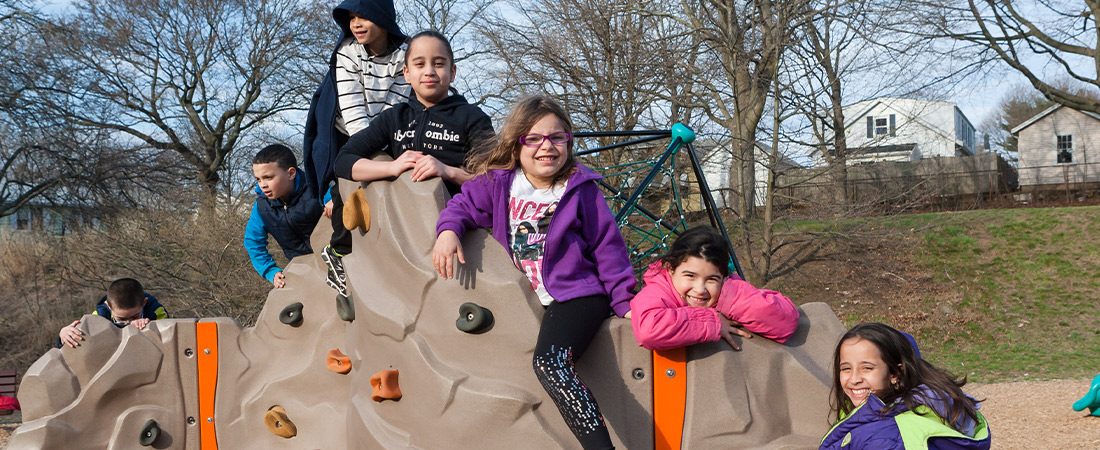
Powerful learning experiences often happen outside of the school day. EDC builds, implements, and evaluates out-of-school and nonformal programs that deliver core civic, educational, and life skills to young people in diverse environments.
In the United States, EDC’s support for out-of-school time (OST) and nonformal learning leverages children’s and youth’s strengths to help them succeed at school, engage in their communities, and lead productive and healthy lives. We design, evaluate, and provide technical assistance on high-quality OST programs that prepare young people for success—whether pursuing social and academic enrichment after school or leaving school and starting a first job.
Internationally, EDC develops and implements programs that support educational and economic opportunities for out-of-school youth. Working within the unique context of each country, we partner with governments, industry, and nongovernmental organizations to provide young people with the skills, knowledge, and opportunities they need to be market-ready and contribute to society.
Related Content
EDC Talks: How Do You Develop High-Quality Out-of-School-Time Programs?
Children can learn a lot from programs that take place outside of school hours.
4 Ways to Strengthen Youth Programs in Conflict and Crisis Areas
Building youth programs in unstable regions can be challenging. Here are four ideas for practitioners.
A Success Story in Senegal
Meet Adama Diedhiou, a participant in EDC’s workforce development program in Senegal.
A Second Chance at School in Mali
In Mali, accelerated education is helping thousands of children get back to school.
3 Ways to Stop the Summer Slide
Want to help kids keep learning this summer? Here are some tips for parents and caregivers.
New Entrepreneurs Launched in Rwanda
EDC’s workforce development efforts in Rwanda are helping young people build the skills for work.
Projects
Resources
Here are a few of our resources on out-of-school learning. To see more, visit our Resources section.
This document highlights lessons learned in implementing the youth mapping development model internationally.
This program guide offers a resource for development specialists initiating or strengthening integrated literacy programs for youth aged 15 to 24 who are not involved informal education.
This report presents findings from a study that EDC conducted for the Massachusetts Departments of Early Education and Care and of Elementary and Secondary Education.
This brief describes how EDC works with multi-sector partners to pioneer new ways to harness the power of digital tools to support families and enhance early teaching, learning, and health promotion.
This document outlines a bold new vision for EDC's next chapter of work and impact. Building upon our 65-year legacy of global impact in education,
This study provides policy makers and program planners interested in youth service programs in developing countries with a history of the evolution of youth service in different regions.
This report covers EDC’s process evaluation of Year 1 of the iDesign project, a three-year NSF ITEST-funded project to engage underrepresented youth in designing interactive, culturally and sociall
Written for program directors, program managers, educators, and others responsible for developing and implementing STEM programs in schools and community-based organizations, this guide seeks to re
These stories were developed through the support of USAID’s Core Education Skills for Liberian Youth (CESLY) program.
This collection of stories highlights the success of youth who participated in the USAID Huguka Dukore Akazi Kanoze project in Rwanda.
